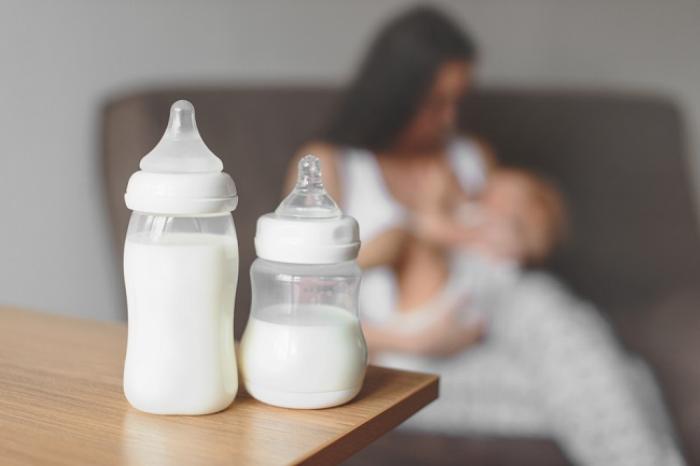When it comes to feeding your baby, knowing how much they should drink can be confusing. Each baby is unique, and their nutritional needs may vary. At six weeks old, your baby is still in a crucial stage of growth and development. Understanding how many ounces should 6-week-old drink can help ensure they receive the nourishment they need.
The Basics of Feeding at Six Weeks
At six weeks, most babies are still feeding either breast milk or formula. They may not have started on solid foods yet. Feeding patterns can vary widely. Some babies will want to eat more frequently than others. In general, newborns have small stomachs and require more frequent feedings. This means you may need to feed your baby every 2 to 3 hours.
Formula Feeding
If you are formula feeding, you may wonder how many ounces your baby should consume. On average, a six-week-old baby typically drinks between 4 to 6 ounces of formula per feeding. This amount can vary based on your baby’s individual needs and appetite.
It’s essential to remember that babies will often show signs when they are hungry. They may root, suck on their fists, or make smacking noises. Pay attention to these cues rather than strictly adhering to a schedule. Some babies may drink more or less than the average amount. Always consult your pediatrician if you are unsure about how much your baby should be eating.
Breastfeeding
If you are breastfeeding, it can be harder to measure how much your baby drinks. Breastfed babies tend to regulate their intake naturally. They will usually drink until they are full. At six weeks, most breastfed babies will feed about every 2 to 3 hours, similar to formula-fed babies.
Since breast milk is more easily digested than formula, your baby may require more frequent feedings. On average, a breastfed baby may consume about 20 to 30 ounces of breast milk in a 24-hour period at this age. This is a rough estimate, as every baby is different.
Signs Your Baby is Hungry
Understanding your baby’s hunger cues can help you determine when to feed them. Babies typically show signs of hunger, including:
Rooting: Turning their head and opening their mouth when their cheek is stroked.
Sucking: Making sucking noises or sucking on their fists.
Crying: This is usually a late sign of hunger, but it is essential to respond quickly.
When your baby shows these signs, it is time to feed them. Over time, you will learn to recognize their unique cues. This will help you respond to their needs more effectively.
Growth Spurts and Feeding Changes
At six weeks, many babies experience growth spurts. During these periods, they may require more food than usual. Growth spurts often occur around 2 weeks, 6 weeks, and 3 months. During a growth spurt, your baby may want to feed more frequently or drink more ounces than usual.
It’s essential to remain flexible during these times. If your baby seems hungrier than usual, allow them to eat more. Their bodies are growing, and they need extra nutrients to support that growth. You may notice that their feeding patterns will return to normal once the growth spurt has passed.
Feeding Guidelines
While the recommendations for how much a six-week-old should drink can vary, here are some general guidelines:
Formula-Fed Babies
Amount: Aim for 4 to 6 ounces per feeding.
Frequency: Feed every 2 to 3 hours, or on demand.
Total in 24 hours: Most formula-fed babies will consume about 24 to 32 ounces in a day.
Breastfed Babies
Amount: It is harder to quantify, but most breastfed babies will consume about 20 to 30 ounces per day.
Frequency: Feed every 2 to 3 hours, or on demand.
Feeding Duration: Each feeding can last from 15 to 30 minutes, depending on the baby’s needs.
Hydration Considerations
At six weeks, your baby is primarily getting their hydration from breast milk or formula. There is no need to give your baby water at this stage. Breast milk and formula provide all the hydration they need.
Offering water can fill your baby’s stomach, leading them to consume less of the essential nutrients from milk. Stick to breast milk or formula until your baby is about six months old. After that, you can start introducing water as part of their diet.
Common Concerns and Tips
As a new parent, you may have concerns about your baby’s feeding habits. Here are some common issues and tips:
Not Drinking Enough
If you feel your baby is not drinking enough, watch for the following signs:
- Fewer wet diapers (fewer than six per day).
- Weight loss or failure to gain weight.
- Lethargy or extreme fussiness.
If you notice any of these signs, consult your pediatrician for guidance. They can help determine if there is an underlying issue that needs to be addressed.
Overfeeding
On the other hand, it is also possible to overfeed a baby, particularly with formula. Look for signs of fullness, which may include:
- Turning their head away from the bottle.
- Closing their mouth.
- Falling asleep during a feeding.
If your baby shows these signs, do not force them to continue eating. Allow them to stop when they are full. Overfeeding can lead to discomfort and digestive issues.
See also: How Much Should My 5-Week-Old Drink
Conclusion
Feeding a six-week-old baby can be a learning experience. Whether you are breastfeeding or formula feeding, understanding how much your baby should drink is crucial for their growth and health. On average, a six-week-old baby will consume about 4 to 6 ounces of formula or about 20 to 30 ounces of breast milk in a day.
Watch for hunger cues and adjust feeding amounts based on your baby’s needs. Growth spurts may require more frequent feedings. Always consult your pediatrician if you have concerns about your baby’s feeding habits. With time and practice, you will become more confident in meeting your baby’s nutritional needs.
Related topics:


